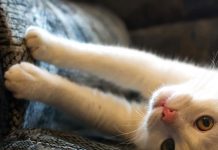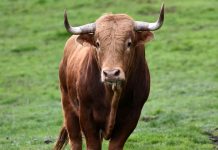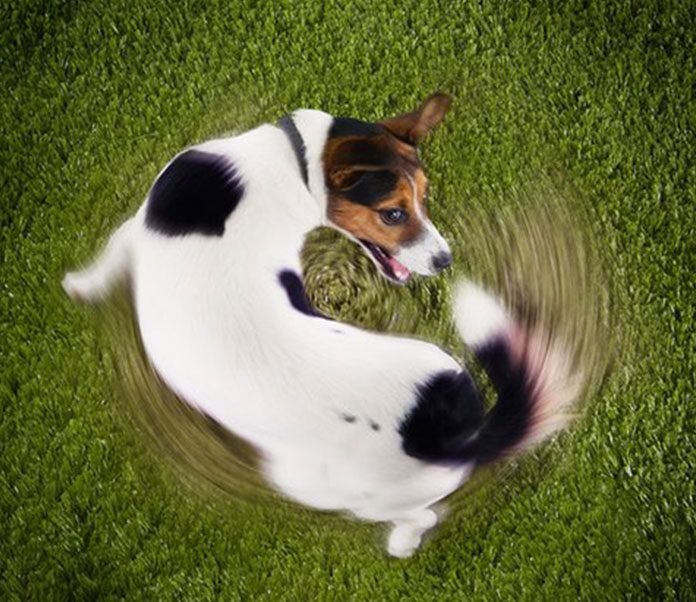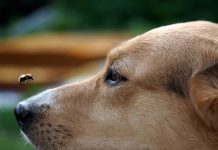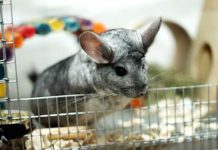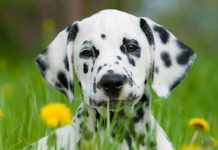Some dogs are prone to becoming victims of obsessive-compulsive disorder when under stress. The stress can cause either a sudden or gradual onset of the condition.
The behavior pattern that emerges will depend on the particular breed. In general, longhaired large breeds of dogs may over groom, herding breeds may chase or hoard and a pure predatory breed may bite, mouth or chase objects. All these have human comparisons.
 All the behaviors performed by compulsive canines are essentially normal behaviors. They are just performed over and over again and out of context. The same occurs with humans. There is nothing wrong with washing your hands repeatedly, but if you wash your hands several hundred times a day you have a problem. Psychiatrists treat the human problems on a case-by case basis. Veterinarians remain divided regarding the significance of canine overly expressed behaviors. Some feel it may be our attempt to humanize our pets, yet others are not so sure. Whatever the cause, it is very real in some dogs.
All the behaviors performed by compulsive canines are essentially normal behaviors. They are just performed over and over again and out of context. The same occurs with humans. There is nothing wrong with washing your hands repeatedly, but if you wash your hands several hundred times a day you have a problem. Psychiatrists treat the human problems on a case-by case basis. Veterinarians remain divided regarding the significance of canine overly expressed behaviors. Some feel it may be our attempt to humanize our pets, yet others are not so sure. Whatever the cause, it is very real in some dogs.
Lick granuloma in the canine is equivalent to hand washing in the human. Affected dogs lick their wrists or hocks excessively, over-cleaning or over grooming themselves until the skin in these regions is ulcerated. For years, no one knew why dogs engaged in this pointless, mindless behavior. Now, veterinarians are seeing the OCD link and with this understanding are able to treat the condition much more effectively. Lick granuloma primarily affects larger breeds of dogs such as Labradors, golden retrievers, Great Danes and Dobermans. Individual susceptibility and environmental influences are also required for the full expression of the behavior. Affected animals are usually anxious, sensitive, and high-strung and may give an impression of a generalized anxiety disorder. Environmental factors include various stresses and conflict situations, including separation anxiety or boredom.
